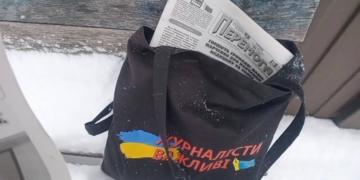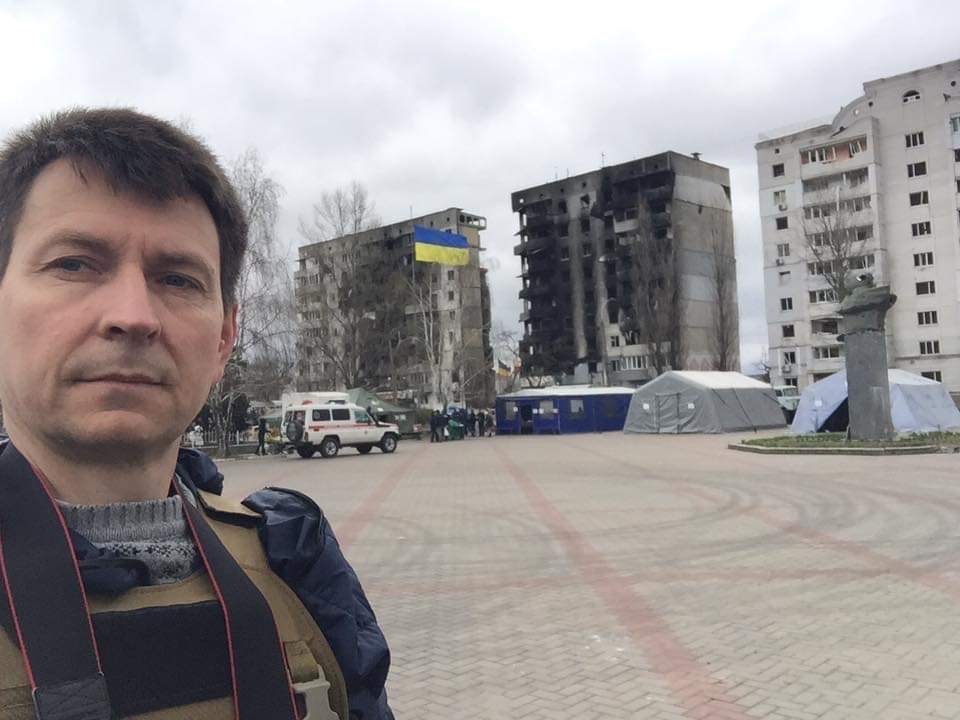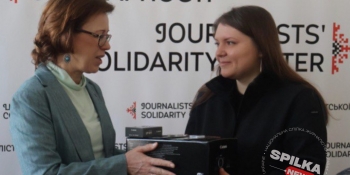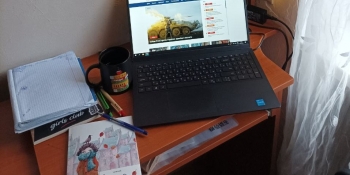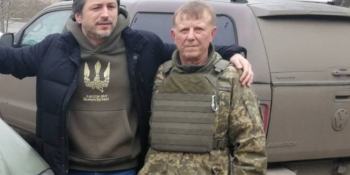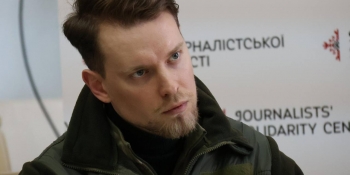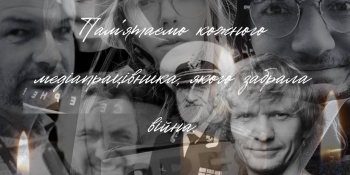It is a weekend evening. There are lots of people on Sofiiska Ploshcha Square in the center of the capital. There is another event here. This time it is dedicated to honoring fallen Azov soldiers. One man stands out in the crowd. He carefully looks at what is going on, quickly writes something down in a notebook and takes a few pictures. Vitalii Holod did not lose his journalistic flair – despite the war, evacuation and other troubles. He now works for the Ukrinform news agency, although he used to be a classic newspaperman, the editor-in-chief of the Nashe Misto Tokmak [Our town Tokmak] newspaper. But it had been earlier, during the peaceful life…
The newspaper Vitalii Holod worked for is no longer published in a print version. It is now available only on the website and social networks. Russians used the printing house in Tokmak as a dormitory.
In March, Vitalii was still staying in his town together with his youngest son. People went to protest rallies every day, and Vitalii was among those fearless people.
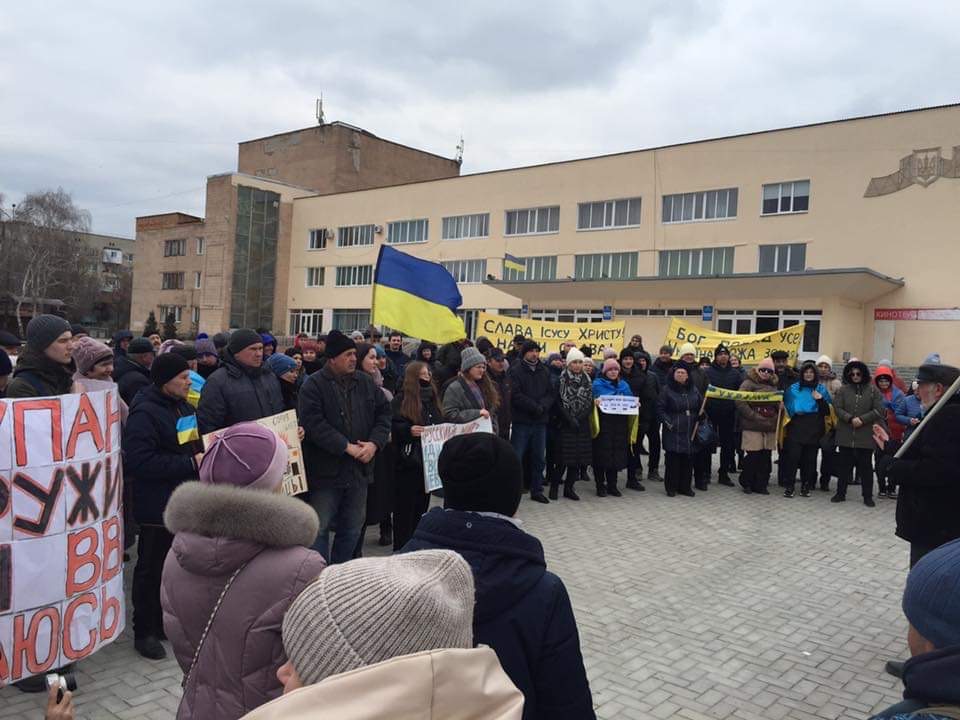
At the beginning, the Russians could not suppress the activity of the Ukrainians. Local activists also managed to help others. At that time, those who managed to escape from Mariupol arrived in Tokmak. Columns of people were settled in kindergartens and churches.
Vitalii himself evacuated to Kyiv in mid-March. He was in occupation together with his son for more than three weeks. They managed to escape before Putin’s terrorists were still not raging at the checkpoints a lot.
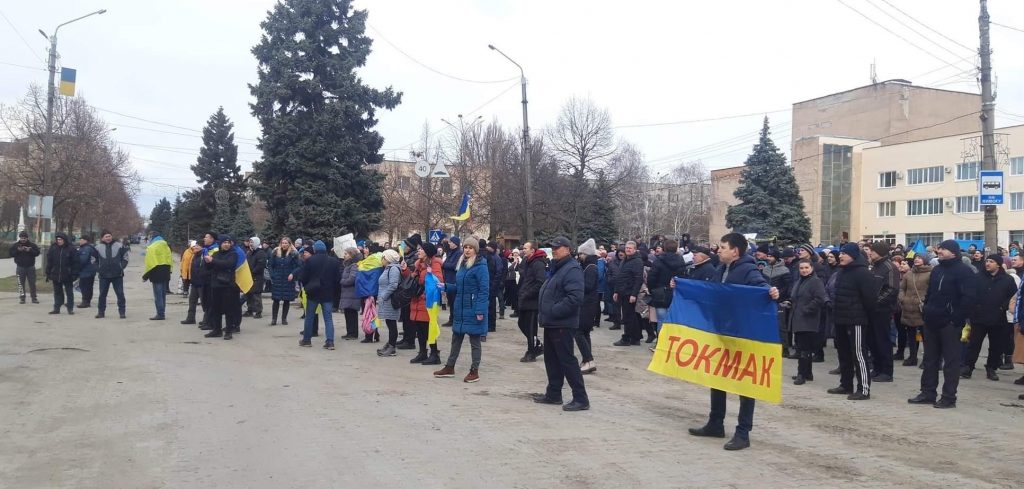
It was already in Kyiv that he got to know that a few days after his departure, ruscists “visited” his house: they broke down the door and turned everything upside down.
The migrant journalist does not lose contact with his hometown, and is already adapting to life in the capital. In Kyiv, together with his sons, he helped volunteers, joined the journalists’ union – at the beginning of the full-scale invasion, the helping hands were not enough there, so Vitalii was brining newspapers from the printing press from the western cities of Ukraine. And then he got a job at Ukrinform.
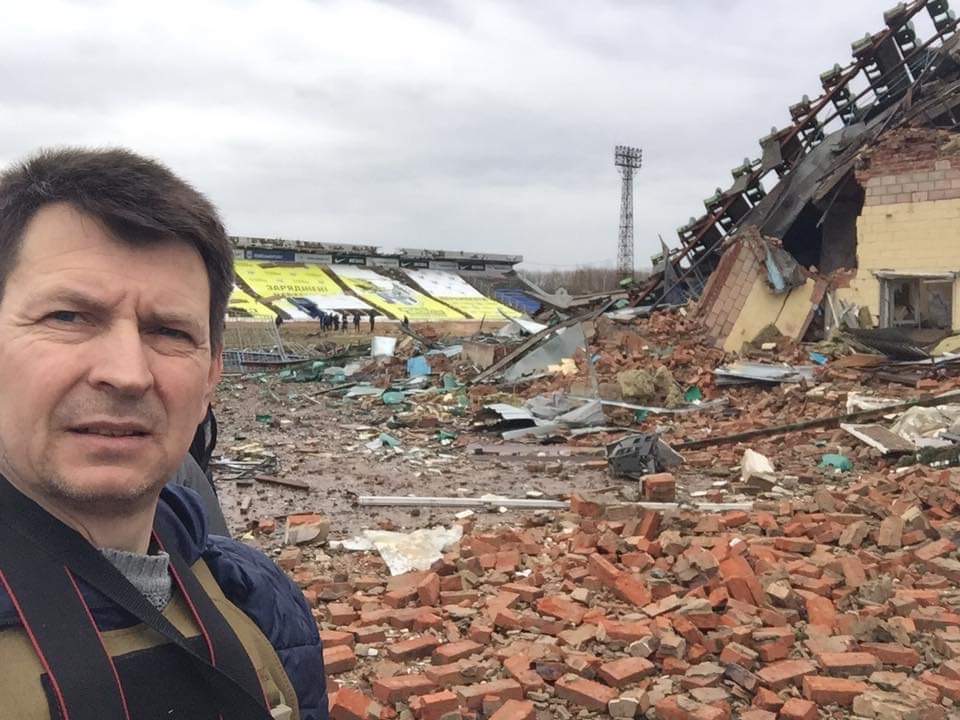
The new team consists of mostly women, so they were happy to see a man there. Vitalii is called a savior: because in March, the flowers in the office had not been watered for a month as all the women were evacuated, and the new employee took care of the plants.
Vitalii often walks around the city after work. He usually makes sure to come over to the stand on Sofiiska Ploshcha Square, where his countryman is depicted: Vadym Foksha, a soldier from Azov, was killed in a Russian bombardment. Vitalii believes that soon he will be able to return to work at the newspaper in his hometown and will definitely write the history of every fallen compatriot.
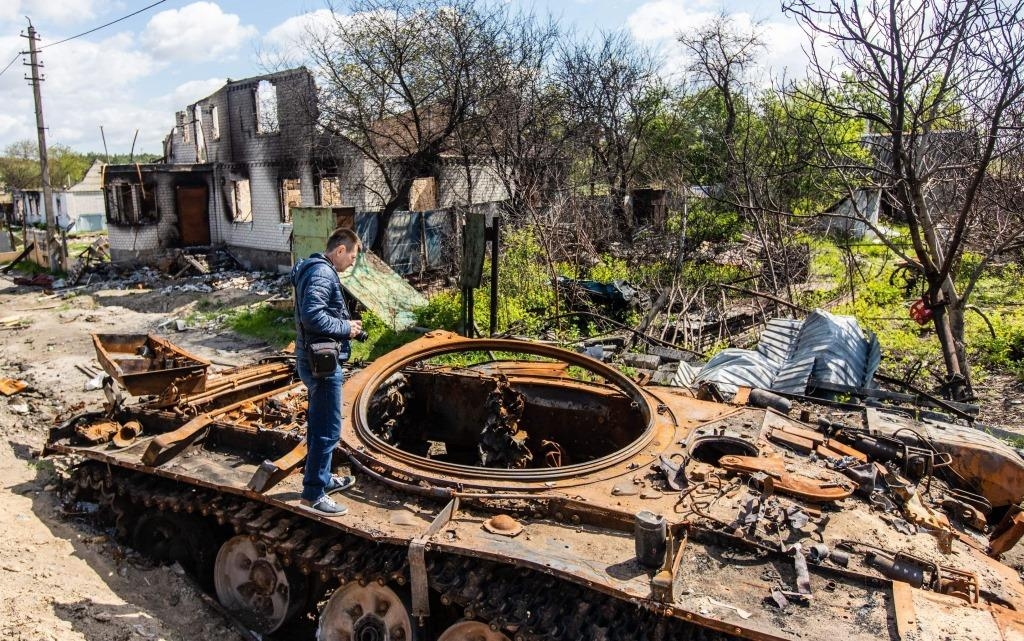
JOURNALISTS ARE IMPORTANT. Stories of Life and Work in Conditions of War is a series of materials prepared by the team of the National Union of Journalists of Ukraine (NUJU) with the support of the Swedish human rights organization Civil Rights Defenders.





